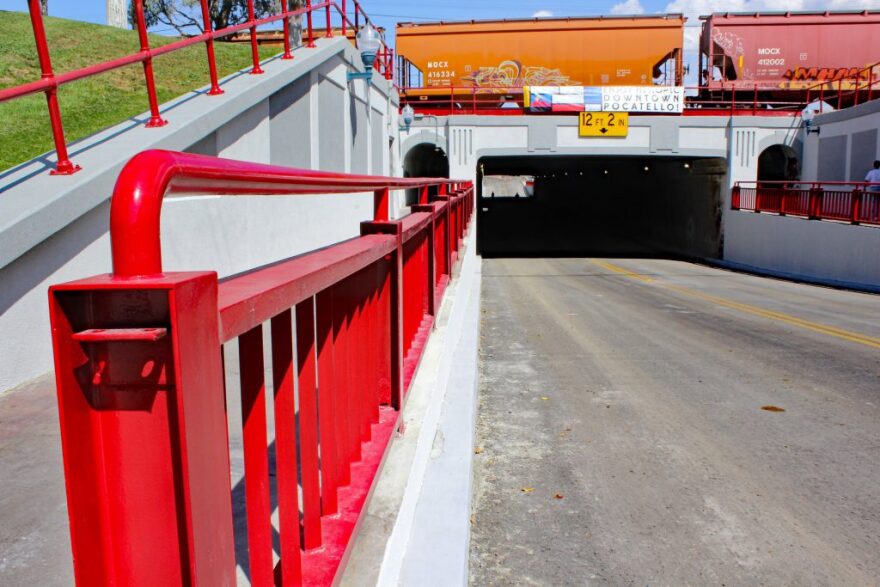Idaho Rep. Simspon submits six projects totaling $20.1M for consideration - Laura Olson from Idaho Capital Sun reports
Link to original story: Electric buses, asphalt and bridges: Politicians jostle for federal transportation cash - Idaho Capital Sun
WASHINGTON — The nearly $1 billion that U.S. Rep. Garret Graves is seeking through Congress’ revamped earmarks process isn’t a typo.
The Louisiana Republican says Baton Rouge desperately needs a new bridge to alleviate a crush of roadway congestion — at a cost of $955.2 million for several projects. That far exceeds the $20 million that House lawmakers have been told could flow back to each district if a new surface transportation bill is signed into law.
Graves said in an interview with States Newsroom that his mammoth request wasn’t “a naive error.” Instead, it was an intentional effort to emphasize the price tag of such a project.
“Do I have any illusions that we will have a billion-dollar earmark? No,” he said. “But this is a bridge, and I wanted to be transparent about this and what it costs.”
The “ask for it all” strategy from Graves is one of several by House members vying for funding in the resurrected earmarks process on Capitol Hill. It comes as infrastructure takes on a new significance in the U.S., following an expansive proposal by President Joe Biden for $2.3 trillion in spending that could help states pay for building and repairing scores of aging and failing highways, bridges and transit systems.
Idaho Rep. Russ Fulcher did not submit projects for consideration from Idaho’s 1st Congressional District, while Idaho Rep. Mike Simpson submitted six proposed projects that total about $20.1 million from Idaho’s 2nd Congressional District.
The White House continues negotiations with congressional Republicans, and it’s not yet clear how much money will be available to dole out or how — but lawmakers also presented with the opportunity to earmark transportation funds for the first time in a decade aren’t taking any chances.
‘Bridge to Nowhere’
Earmarks — or money designated for specific projects in congressional spending bills — were banished by Republicans when they took control of the House in 2011 following intense public criticism of corruption and a lack of fairness. The process of inserting local projects was used to flip hesitant legislators to “yes” votes on tough bills, but it resulted in a lopsided allocation of dollars to only some districts.
One of the most famous infrastructure earmarks, derided as a national embarrassment, was the $223 million “Bridge to Nowhere” in Alaska, which was supposed to connect a small city with its airport on a nearby island. The proposal was finally killed a decade after its inception.
In bringing back that process this year, congressional Democrats have new guidelines intended to make earmarks more fair and more visible.
The projects, which House lawmakers have submitted for both the annual appropriations bills and the upcoming surface transportation authorization measure, must be posted on each lawmaker’s website with documentation and a letter attesting that the member has no financial stake in the project.
The last time that the five-year transportation authorization bill included earmarks was in 2006, when it included 5,091 projects at a cost of $14.8 billion.
The 2,380 transportation projects requested this year hit essentially that same price tag, according to a list released by the House Transportation and Infrastructure Committee. Those requests for nearly $14.9 billion came from 318 members: 213 Democrats, and 105 Republicans.
Among legislators from the 22 states in the States Newsroom network, there were 915 projects requested, at a cost of more than $5.6 billion.
Highway resurfacing, road capacity
Many of the projects focus on the typical roadway repairs envisioned in a bill doling out dollars for highways, bridges, rail and public transit: highway resurfacing, projects to add lanes, and a flurry of proposals to boost road capacity.
But there are also items reflecting the country’s changing needs and technology — electric bus infrastructure was a popular request by lawmakers from Arizona to Minnesota to North Carolina. Those project requests nationally tallied at least $99.5 million, according to Bloomberg Government.
On average, lawmakers from States Newsroom states are seeking funding for seven projects each, with the typical cost for each member’s project list at $44.6 million.
But the scope of federal dollars sought varies widely from district to district. Some lawmakers — mostly Republicans — did not submit any requests for infrastructure projects, though some did request local projects in the appropriations bills.
Of the Republican lawmakers from States Newsroom states, 58 did not submit transportation requests. Six Democrats did not submit proposals.



